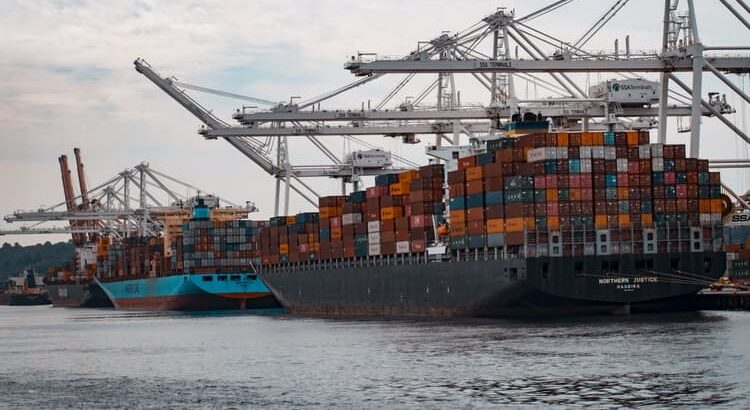Are you looking for a flexible shipping solution for your business? Have you found yourself asking, “What is freight forwarding?” Would you like to know whether freight forwarding is right for your organization?
If this sounds familiar, then you have come to the right place. In the guide below, we’ll take an in-depth look at freight forwarding so that you can determine whether it is the best choice for your shipping needs.
Known as the best-in-class fulfillment service, ShipBob can help you streamline your business with warehousing solutions, robust integration software, improved transit times, and reduced shipping costs!
How Does Freight Forwarding Work?
Before explaining how this service works, let’s start with the freight forwarding definition. Freight forwarding services can best be described as the coordination and shipping of goods from one location to another.
This transportation may be provided by a single carrier or multiple companies. The goods may be shipped via any combination of marine, rail, ground, or air transportation methods.
Now that you have a general idea of how the process works, let’s answer a few commonly asked questions about these services.
What Is a Freight Forwarder?
A freight forwarder is a company that facilitates the shipping of goods and services through logistics providers. These organizations may or may not have their own shipping resources. Oftentimes, they arrange shipments with their partner carriers.
What Do Freight Forwarders Do?
Freight forwarders will assess your company’s unique shipping needs. They will coordinate with their logistics partners to find the best solutions for your business. This is especially important if you need to ship specialized materials or products.
Who Needs Freight Forwarding?
Business owners of all sizes can benefit from freight forwarding services. Whether you need domestic or international shipping solutions, a freight forwarder can help.
They will be able to efficiently arrange transportation of your goods while also maximizing your savings.
How Do Freight Forwarders Save Businesses Money?
Since freight forwarders partner with multiple carriers, they can easily obtain quotes before arranging your shipping services. They can find you the best rates while also meeting your delivery deadlines.
Is Amazon a Freight Forwarder?
Amazon is not a freight forwarder. The eCommerce giant ships products that are being sold by its affiliates. The company does not ship items that are sold on separate sites.
One example of a freight forwarder is DHL Supply Chain & Global Forwarding. This massive company has dozens of partnerships with logistics firms worldwide. They also have their own shipping resources.
Freight Forwarding Services
What is freight forwarding? The easiest way to answer this question is to explain the types of services that these organizations provide.
A freight forwarder oversees a variety of shipping-related tasks, including:
Customs Clearance
Every nation has unique customs regulations. The freight forwarder will ensure that your shipments are compliant with the customs laws at the departure and import locations.
This will avoid delays when your shipments are inspected by customs agents.
Cargo Insurance
Freight forwarders also offer cargo insurance. While shipping-related losses are rare, they do happen. Cargo insurance can help you protect your investment in the event of an unexpected severe weather event or accident.
International Import and Export Documentation
A freight forwarder will also ensure that your shipment has proper international import and export documentation. This includes items such as a bill of lading and import permits.
Packing, Labeling, and Loading
Your shipment must be properly packaged, clearly labeled, and safely loaded on transport vessels. While you may not know exactly how you have to package your shipment, the freight forwarder will.
Storage
In some instances, you may need to store your shipment for an extended period of time when it arrives at the final destination. Freight forwarders’ logistics networks include warehouse space to facilitate both short and long-term storage.
Inventory Management
Well-organized inventory management is essential if you want to avoid costly supply-chain issues. Freight forwarders can provide ongoing inventory management and support so that you can keep your business running smoothly.
6 Stages of Freight Forwarding
So exactly how does freight forwarding work, you ask? Typically, it occurs over a series of six stages. These steps include:
Export Haulage
The first stage is referred to as export haulage. This is where your goods are brought to the forwarder’s warehouse.
Items Checkpoint
Once your goods arrive at the freight forwarder’s warehouse, they will inspect the delivery. The freight forwarder will make sure that it is eligible to be shipped to the specified destination.
Export Customs Clearance
Before the freight forwarder can load your shipment into the carrier, the items must be validated by customs authorities. Your freight forwarder will likely coordinate with customs brokers that have expertise in the field.
Imports Customs Clearance
Imports customs clearance is almost identical to stage three. However, your goods will now be validated in accordance with the customs requirements of the receiving country.
Destination Arrival and Handling
After import and export customs clearance has been performed, the freight forwarder will gather all of the necessary forms for your shipment. This includes carrier bills, permits, and other documents.
Import Haulage
The final stage of freight forwarding involves transporting your shipment to the final destination. Import haulage may be performed by the freight forwarder or a partner logistics company.
Advantages of Freight Forwarding
Freight forwarding is a popular shipping solution due to the distinct benefits that it offers. Some of the key advantages of these services include:
- Cost savings
- Specialized shipping options
- Access to a network of partner carriers
- Access to expertise and knowledge
- Rapid delivery
Freight forwarding is a versatile and flexible service that has helped thousands of businesses to meet their supply chain demands. This service has the potential to do the same for your business.
Freight Forwarding vs. Logistics
Is logistics the same as freight forwarding? Not exactly. The biggest difference between a freight forwarder and carrier is that the former partners with multiple logistics companies. Logistics carriers are typically limited to their own network of transport capabilities.
The biggest advantage that freight forwarders have over logistics companies is that they have advanced price-checking capabilities. They can find the exact solutions to suit your company’s unique shipping needs.
Is Freight Forwarding Right for My Business?
Freight forwarding is an excellent solution if you need to ship specialized resources internationally. Freight forwarders typically partner with multiple logistics companies and have the ability to compare prices to find you the best rates. If you want to maximize savings, consider partnering with a freight forwarding agency as opposed to a logistics company.



